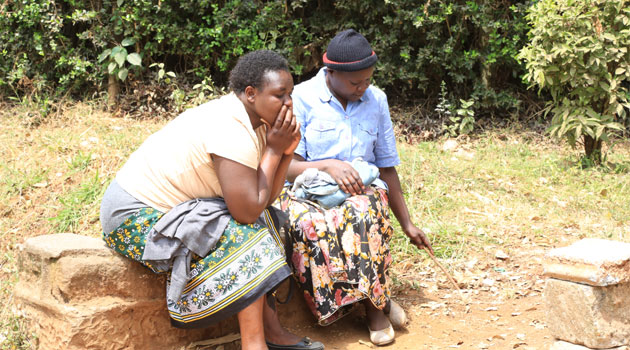
Women from different parts of Nairobi converge and sit on stones (mawe) waiting for household day jobs/FRANCIS MBATHA
It was in June 2015, when a lady, Nicole Karimi and her mother stopped at Bagladesh Mawe to talk to the women who had gathered in dozens each sitting on a stone.
Like a miracle sent from heaven, Karimi told them she wanted to see how she could find a more lasting solution to help not just one of them but as many as she could.
It was something she had thought about after a nasty experience with several day house helps.
“I had nanny issues in my own home after I got my second baby. That’s the time you need these people to help you. So I kept on replacing and replacing but when I was with the third one, that’s when it hit me, probably it’s not them, maybe it’s also us.”
“When you interview them, when you get them, they seem to know everything. But when they land to my house, the story is totally different. They don’t know anything,” Karimi recounted.
Karimi realised that as the women roamed from base to base finding day jobs was as hard as the stones they sat on.
“Their stories were sad. They are definitely living in poverty. They can go for a month without casual jobs. Even you as a person you wonder how are they surviving. It means even their children are not in school.”
“We made a conscious decision with my mum and said we have to help these women. When they don’t get jobs, they can’t afford a mere Sh50 to pay to the landlord, they get locked out with their children,” she added.
She decided to help those women but of course she couldn’t help all the dozens of them who gather at Bangladesh Mawe on daily basis.
Karimi and her mother decided to form M.A.W.E – Mama And Watoto Empowerment (Mother and Children).
Kenya suffers from chronic unemployment even among educated people.
For many women in the city, life is a desperate struggle for survival. They lack the most basic skills of general cleanliness of the same jobs they go hunting for.
Worst of it is that they live in slums where lifestyle is completely different from the people who hire them.
“When they go to these homes they clean them the way they know or the way they clean their own homes. Chances are when they leave that home they will not be called back. That’s how you find someone has no job for one month,” Karimi explained.
Karimi and her mother use skills they have acquired through their experience as employers, wives and mothers to train the 20 women they selected from Mawe Bangladesh.









































